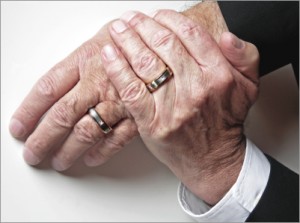Published: October 26, 2011
 Want To Resist Temptation? A New Study Suggests Thinking Might Not Always Help You
Want To Resist Temptation? A New Study Suggests Thinking Might Not Always Help You
Uh-oh. Here comes temptation—for a dieter, it’s a sweet treat; an alcoholic, a beer; a married man, an attractive, available woman. How to defeat the impulse to gratify desire and stick to your long-term goals of slimness, sobriety, or fidelity?
Here’s some advice: Don’t stop and think. Thinking may not help.
That is one surprising conclusion of a new study by Loran Nordgren and Eileen Chou at Northwestern University’s Kellogg School of Management, published in Psychological Science, a journal of the Association for Psychological Science. [continue reading…]
Published: October 26, 2011
 How can a good night’s sleep improve your memory? Why does the answer to a crossword clue suddenly appear first thing in the morning after a night’s rest? In this week’s All in the Mind Claudia Hammond talks to psychologist, Kimberly Fenn about what happens in the brain when we sleep and why it can significantly improve our memory. Hysteria or conversion disorder is surprisingly, not confined to medical history. Nearly 1 in 5 patients seen by neurologists will have symptoms like paralysis, fits or loss of vision which can’t be explained neurologically. Claudia talks to neurologist, Mark Edwards and psychiatrist, Richard Kanaan about the history of conversion disorder, how common it is today, the best way to treat it and its complex causes. Also in the programme, Claudia meets the carers getting involved in mental health research and why their input is making a a difference to research projects exploring mental health across the country.
How can a good night’s sleep improve your memory? Why does the answer to a crossword clue suddenly appear first thing in the morning after a night’s rest? In this week’s All in the Mind Claudia Hammond talks to psychologist, Kimberly Fenn about what happens in the brain when we sleep and why it can significantly improve our memory. Hysteria or conversion disorder is surprisingly, not confined to medical history. Nearly 1 in 5 patients seen by neurologists will have symptoms like paralysis, fits or loss of vision which can’t be explained neurologically. Claudia talks to neurologist, Mark Edwards and psychiatrist, Richard Kanaan about the history of conversion disorder, how common it is today, the best way to treat it and its complex causes. Also in the programme, Claudia meets the carers getting involved in mental health research and why their input is making a a difference to research projects exploring mental health across the country.
 Listen now
Listen now
Published: October 26, 2011

Image: istockphoto
Going into residential care or receiving care at home can be like going back into the closet for older gay people, according to a new Kingston University study that raises significant questions for how society responds to their needs.
The report, written by sociology lecturer Dr Andrew King from London’s Kingston University, also highlights a lack of dedicated social spaces for older (50+) lesbian, gay, bisexual and transgender (LGBT) people and a need for council and NHS staff to be much more aware of LGBT issues. It has implications for GPs, health and social services and council workers at a time when Britain’s population is ageing. Charity Age UK estimates that 1 in 15 users of their services are lesbian or gay.
This qualitative research, commissioned by Tower Hamlets Borough Council and co-written with Dr Ann Cronin, formerly from the University of Surrey, involved detailed interviews with 22 older lesbian, gay and bisexual individuals across a range of income levels during a period of three months. The project also encompassed focus groups and a thorough review of existing research. It revealed that accessing services and support can be a difficult and worrying experience.
“I didn’t have a GP so I went to this one near me and he said: ‘You’re forty years old, why are you not married and what do you do? You’re a dancer? Mmmmm’,” 52-year-old Frank* said. “He was an awful, awful man. I never saw him again.” [continue reading…]
Published: October 26, 2011
Autistic people whose condition prevents them from speaking are making breakthroughs with the help of tablet computers and special applications that allow them to communicate, some for the first time. Lesley Stahl reports.
Read more
Source:: CBS News hat tip +Susan Giurleo
 Want To Resist Temptation? A New Study Suggests Thinking Might Not Always Help You
Want To Resist Temptation? A New Study Suggests Thinking Might Not Always Help You

